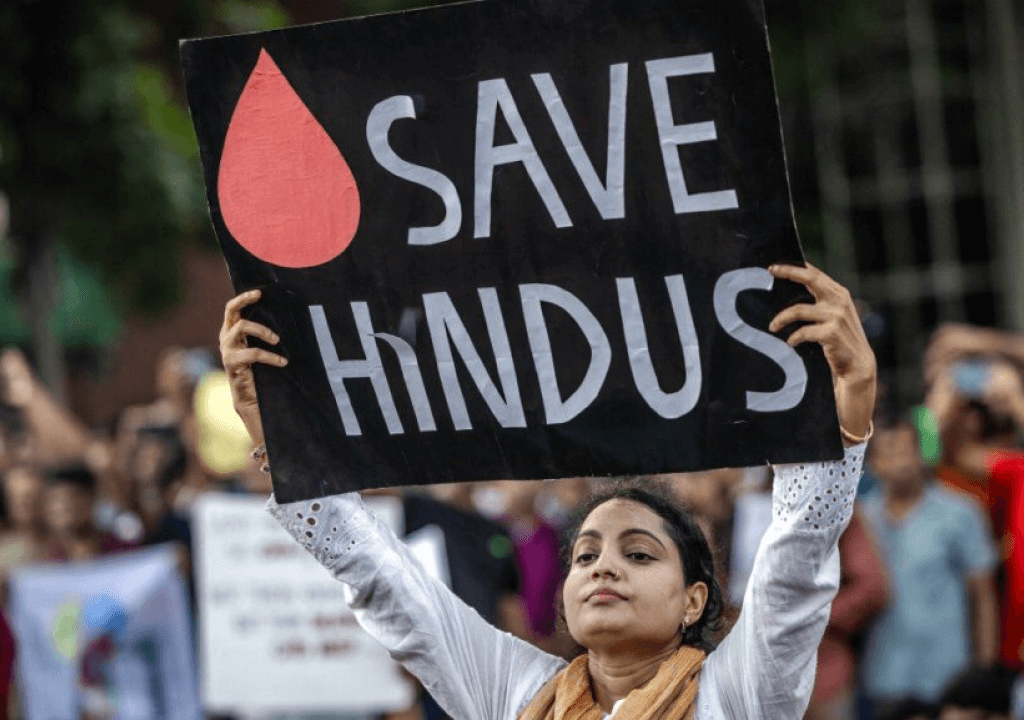Bangladesh, like many republics in the Islamic world, seems to be descending into complete anarchy and escalating communal conflict. A popular uprising in August, driven by calls for “true democracy,” toppled the secular government, and the “Revolutionaries” gradually paved the way for an Islamic populist regime. This familiar pattern recalls the Arab Spring. Today, Bangladesh is under the control of an interim government with significant Islamist influence, actively dismantling the progress achieved by its secular predecessors. The interim leadership, which views neighboring India as an enemy, has allowed the Hindu community in the state to become a target. Minorities, labeled as threats by the Islamists, face escalating persecution. Their leaders are imprisoned on trumped-up charges, and even Muslims who dare to defend Hindu rights are targeted. As a state forged from a blend of irreconcilable ideologies, Bangladesh now stands under grave threat, with the deepening divide between communities and politics intensifying.
Born out of tensions between India and Pakistan, Bangladesh has long been caught in a tug of war between these two nations. Domestic politics have been shaped by parties aligned either with India or Pakistan. While the government in Dhaka has generally supported India, Islamist and Pakistan-backed parties have stirred turmoil, and vice versa. In the past decade, Sheikh Hasina, supported by India, led the administration and targeted Islamists, many of whom ended up in prison. Under her leadership, the country experienced rapid economic growth and became a model for development. However, much like the Arab Spring, anti-Hasina forces reignited Islamic politics to unite the people. As left-wing groups joined the movement, Hasina lost control and fled to India. The people celebrated her downfall, intruding into her official residence and taking her personal belongings, including her underwear. Hasina’s flight to India angered both Islamists and left-wing groups, fueling even more animosity toward India. While Pakistan has remained less active, its Islamist political factions have exploited this anger to their advantage. As a result, Bangladesh’s identity—a unique blend of Islamic and Bengali identity that once defined the country—now seems overshadowed by a growing Islamic identity. Islamists are turning against the foundational principles of Bangladesh, rejecting the vision of those who fought for independence from Pakistan and championed a nationalism rooted in Bengali identity, not Islamic unity. The interim government now aims to establish a new identity, erasing the legacy of India’s support in the struggle for independence, the founding leaders, and the founding political party. This marks the end of old Bangladesh and the emergence of a new Bangladesh that has no past.
It is clear that an Islamic Bangladesh is on the horizon, sparking tensions over the treatment of minorities, particularly the Hindu community and its relationship with India. The Hindu community, once supported by the Hasina government, served as a bridge between India and Bangladesh. With the Islamists coming to power, the community now fears they will be targeted and persecuted. Reports of violence against Hindus during the protests that led to Hasina’s ouster were widespread. Initially, it seemed that the interim government, formed under Nobel laureate Muhammad Yunus with guidance from the West, had brought things under control and would protect minorities. However, that peace was short-lived. As people’s lives descended into greater turmoil under the new leadership, minorities once again became targets, with many believing they are anti-national. Hindu leaders and organizations in the country are increasingly targeted, and the arrest of prominent figure and leader of the Hindu organization ISKCON, Chinmoy Krishna Das, further escalated tensions.
The interim government is drafting new policies and a constitution before the elections that will shape Bangladesh’s future. It is clear that more Islamic elements will be included, despite the current constitution recognizing Islam as the state religion while adopting secularism as a policy. The call to remove secularism has already gained traction. Anti-Hasina protests are driving the interim government, and prolonging its rule will likely ignite riots against them. Jamaat-e-Islami, strengthened after Hasina’s ouster, aims to establish an Islamic republic. Khaleda Zia, the former prime minister, is likely to try to regain power, while left-wing student movements, influenced by the West, may push for another revolution. Bangla nationalists remain active and could revive their efforts if the interim government fails. If the persecution of Hindus continues, India may intervene. Tough days lie ahead for Bangladesh, and uniting all these factions will be a significant challenge. Without that unity, Bangladesh faces the threat of collapse.








